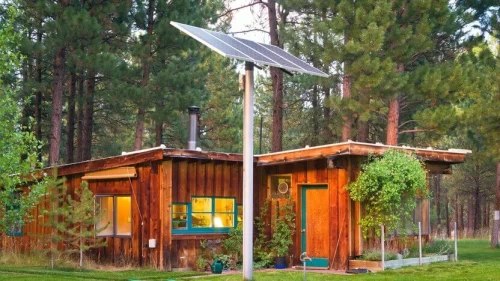
Off-Grid Living: Sustainable Tips for Independence
Embracing off-grid living is a lifestyle choice that promotes self-sufficiency and sustainability. In this article, we explore practical tips for those seeking to live off the grid, fostering independence and a closer connection to nature.
Choosing the Right Location: Foundation for Off-Grid Living
Selecting the right location is crucial for successful off-grid living. Consider factors such as climate, available resources, and local regulations. An ideal off-grid location provides access to sunlight for solar power, water sources, and ample space for sustainable practices like gardening or raising livestock.
Harnessing Renewable Energy Sources: Solar and Wind Power
Off-grid living relies heavily on renewable energy sources. Solar panels and wind turbines are popular choices for generating electricity. Strategically placing solar panels to capture sunlight or installing a small wind turbine can provide a consistent power supply, reducing dependence on traditional energy sources.
Implementing Water Harvesting Systems: A Precious Resource
Water conservation is paramount in off-grid living. Implement water harvesting systems like rainwater collection. Install gutters and storage tanks to capture rainwater for various uses, including drinking, irrigation, and cleaning. Efficient water management ensures a sustainable and independent water supply.
Building Sustainable Structures: Eco-Friendly Homes
Designing and constructing eco-friendly homes are essential elements of off-grid living. Utilize natural building materials like reclaimed wood, straw bales, or cob for eco-friendly construction. Optimize insulation to regulate temperature, reducing the need for excessive heating or cooling.
Establishing Food Independence: Gardening and Livestock
Off-grid living promotes food independence through gardening and raising livestock. Cultivate a diverse vegetable garden using permaculture principles. Consider keeping chickens for eggs or goats for milk. Sustainable agriculture practices contribute to a self-sufficient and diverse diet.
Investing in Energy-Efficient Appliances: Minimizing Consumption
Off-grid living requires a conscious effort to minimize energy consumption. Invest in energy-efficient appliances and devices to reduce electricity usage. LED lighting, energy-efficient refrigerators, and propane-powered appliances are examples of choices that align with sustainable living.
Waste Management Strategies: Reduce, Reuse, Recycle
Effectively managing waste is integral to off-grid living. Embrace the principles of reduce, reuse, and recycle. Composting organic waste, repurposing materials, and recycling contribute to a waste-free lifestyle. Minimizing waste helps maintain a clean and sustainable off-grid environment.
Mastering Conservation Practices: Responsible Resource Use
Conservation practices are at the core of off-grid living. Conserve resources by using them responsibly. Practice water and energy conservation, adopt minimalistic living principles, and prioritize a sustainable lifestyle to minimize your ecological footprint.
Creating Community Connections: Collaborative Off-Grid Living
Off-grid living doesn’t mean isolation. Build connections with like-minded individuals in off-grid communities. Collaborate on shared resources, knowledge, and support. Creating a network fosters a sense of community, making off-grid living a shared and enriching experience.
Emergency Preparedness: Ensuring Self-Sufficiency
Off-grid living requires preparation for unforeseen circumstances. Develop an emergency plan that includes essentials like food storage, first aid, and communication tools. Being self-sufficient in emergencies ensures you can navigate challenges with resilience and minimal dependence on external support.
For a comprehensive guide on off-grid living, be sure to check out Off-Grid Living Tips. These sustainable tips will empower individuals seeking independence and a closer connection to nature through the off-grid lifestyle.
